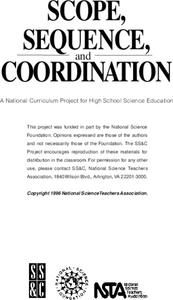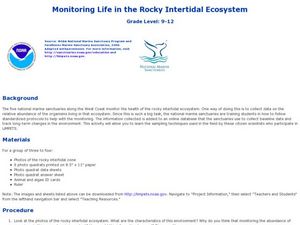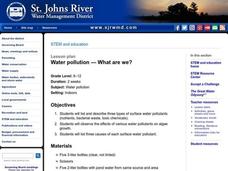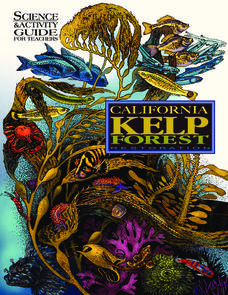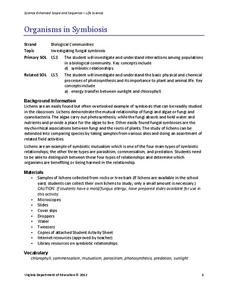Curated OER
Classification Schemes
Junior biologists journey through the hiearchy of living things with these activites. Using a dichotomous key, they identify common algae, plants, and fish. They design their own key for a mixture of seeds and a collection of...
Curated OER
Algae Experiments
Students describe the characteristics of algae. In this biology lesson, students perform a series of experiment to explore algae. They investigate the basic things algae need to survive.
Curated OER
Evolution and the Fossil Record
Engage young biologists with four laboratory activities that explore the fossil record. Learners examine fossil images, a fossil kit, the rock record, and geologic time scale. They even experiment with the oxygen production of an Elodea...
Curated OER
There Are Algae in Your House!
Students complete a worksheet at home stating what types of food they have at home with algae in it. They, in groups, compare with each other what they have on their worksheet.
Curated OER
Microfishing
Students use a simple method to collect living microorganisms from natural and/or artificial environments and develop skills in microscopy, observation, drawing, speculation, hypothesizing, oral presentation, and raising questions.
Curated OER
Theater Game: "The Good, the Bad, and the Bountiful"
Students play a game to demonstrate the detrimental effects of an algal bloom on the environment. In this microorganism lesson, students discuss microbes and algae. They dramatize the effects of an algal bloom using a role-playing game.
Curated OER
WET Science Lesson #5: Pass the Salt Please! (How Road Salt Affects Wetlands)
As an anticipatory set, biologists listen to the story of Ruth Patrick, a scientist who used algae to detect water quality. They observe a demonstration of osmosis and diffusion. In their lab groups, they place Elodea stalks in...
Curated OER
Bad Algae!
Learners explore algal blooms. In this ecosystem and health lesson, students define and describe harmful algal blooms, then discuss ways in which the impact of these algal blooms could be reduced. Learners work in groups to research...
Curated OER
Effects of Nitrate and Phosphate Changes on the Growth of Algae
Students determine the effects of an increase of the amount of nitrate and phosphate levels on the growth of algae. the development of a hypothesis is encouraged and students proceed to a conclusion based on their results.
Curated OER
Prokaryotes and Eukaryotes
Examine cyanobacteria cells as an example of prokaryotes and several other alga as examples of eukaryotes. Future biologists compare the two and notice the absence of nuclei in prokaryotes. These are classic activities for this purpose,...
Curated OER
$$$eaweed
Young scholars compare and evaluate the world's different seaweeds. For this investigative lesson students study seaweed and the harvesting of it. They then interpret the data collected and graph the seaweed production.
Virginia Department of Education
Changes in Ecosystems
How does water pollution affect the environment? Provide your class with the resources to answer this question as they learn about eutrophication and ecosystem changes. Over two weeks, they simulate the effects of pollution on the...
Polar Trec
Drawing Diatoms like Ernst Haeckel
Why do scientists rely on drawings rather than just photographs of their research studies? The lesson introduces drawings of microscopic organisms and the importance of accuracy. Young artists draw organisms and learn why focus and...
Curated OER
Monitoring Life In The Rocky Intertidal Ecosystem
Students investigate marine life by researching aquatic organisms on the Internet. In this oceanography lesson, students monitor algae and animals of the ocean by identifying their population and habitat on data sheet ID cards. Students...
Curated OER
What Are We?
Students list and describe three types of surface water pollutants. They observe the effects of various water pollutants on algae growth. Three causes of each surface water pollutant is listed.
Dawn N . Ericson
California Kelp Forest Restoration
This unit is so cool, you won't be able to "kelp" yourself! Intended for all grades, this science and activity guide for teachers offers a unique opportunity to understand kelp's role as a valuable ecological resource. Teachers and...
Curated OER
Water Quality and Nitrates & Phosphates
Students examine the effects of nitrates and phosphates on the dissolved oxygen levels in different water sources. In this series of 3 lessons, they consider the reasons for nitrate and phosphate level increases and their effects on...
Curated OER
Microworlds in Waterways Around You Home
Students explore the concept that different waterways support different organisms. After completing experiments, students predict what life-forms exist in each waterway in their area. They research how humans impact the habitat of other...
Curated OER
Harmful Algal Blooms in Full Bloom
Learners calculate the total percentage of samples from the data on the graphs. In this marine science lesson, students analyze the concentration levels over a period of time. They suggest ways to lessen the effect of these blooms.
Curated OER
What Are We?
Students describe different types of water pollutants. They complete experiments in which they observe the affects of water pollution on algae. They also brainstorm and list three causes of each water pollutant.
National Wildlife Federation
Ghost Town
Around 93 percent of the reefs on Australia's Great Barrier Reef have been bleached, and almost one quarter of them are now dead. Scholars research the sea temperatures, especially around the areas with coral reefs, to make connections...
Virginia Department of Education
Freshwater Food Chains
What's in the water? Encourage your class to further explore this question and learn about pond ecosystems, food chains, and food webs as they complete this hands-on activity. They view the environment from a new perspective after...
Virginia Department of Education
Organisms in Symbiosis
Searching for an activity that allows emerging biologists to explore symbiosis up close and personal? Pupils collect samples and view lichens through a microscope and conclude with a discussion about the relationship they have with other...
Curated OER
Coral Bleaching in the Caribbean
Students practice analyzing images, maps and graphs from Internet-based educational resources. They explore the correlation between sea surface temperature and coral bleaching. Students comprehend that coral reefs are collections of tiny...
Other popular searches
- Algae. Phytoplankton
- Algae Growth
- Coralline Algae
- Algae Cells
- Marine Algae
- Red Algae
- Corals and Algae
- Algae Blooms
- Multicellular Algae
- Blue Green Algae
- Phosphate Algae Detergents
- Green Algae


